#Classical Music Reviews
Text
Review of "Mahler: Symphony No. 5." David Bernard, Park Avenue Chamber Symphony. Recursive Classics RC5956731
If you have been enjoying the Park Avenue Chamber Symphony for a while, or if you have been reading Classical Candor for any length of time, you probably know how good the Park Avenue ensemble sound. The orchestra includes mainly players who do other things for a living (like hedge-fund managers, philanthropists, CEO's, UN officials, and so on). They're not amateurs by any means, but they're not full-time musicians, either. Nor is the Park Avenue Chamber Symphony a particularly small group. It's about the size of most other full-sized symphony orchestras. Whatever, whether you’ve heard them or not, believe me, their playing will dispel any skepticism about the quality of their work; everyone involved with the orchestra deserves praise, especially their energetic leader, Maestro David Bernard.
To read the full review, click here:
John J. Puccio, Classical Candor
#Classical Music#Classical Music Reviews#Classical Music Albums#Classical Music Album Reviews#Music#Music Reviews#Music Albums#Music Album Reviews#CD#Compact Disc#Mahler#Symphony No. 5#Symphony#David Bernard#Park Avenue Chamber Symphony#Recursive Classics
6 notes
·
View notes
Text
Review of Beethoven: Piano Concertos Nos. 1 & 3 (Harmonia Mundi, Period Instruments)
To read the review, click here:
#Classical Music#Classical Music Reviews#Classical Music Albums#Classical Music Album Reviews#Music#Music Reviews#Music Albums#Music Album Reviews#Beethoven#Piano Concertos#Piano#Period Instruments#Bezuidenhout
1 note
·
View note
Text
- I want the simple humanity. carefree... not all of that....
It's a moment when you can just be here and now, without thinking about problems or responsibilities, when you can appreciate the beauty of the world around you and enjoy every little thing to cheer yourself up. When you can just live freely, where nothing bothers you.
#academia aesthetic#aesthetic#chaotic academia#classic academia#dark academia#dead poets society#light academia#romantic academia#book review#self love#poetic#poem#poetry#music
41 notes
·
View notes
Text
Shoegaze Classics - Loveless

Loveless - My Bloody Valentine (1991)
Main Genres - Shoegaze, Noise Pop, Dream Pop
A decent sampling of: Experimental Rock, Neo-Psychedelia, Alternative Dance
DUT DUT DUT DUT VREW VREW VREW VREW VREW VREW VREW
Well, if you knew anything about shoegaze going into this series, you knew that this review was going to be inevitable.
Today I take on the most truly revered shoegaze band, and probably one of the most legendary indie bands of all time. God help me, I'm going to do my best, so here goes nothing. Let's talk about My Bloody Valentine and Loveless.
The Band
My Bloody Valentine is an awesome band. Plain and simple. The name is awesome, the sound is awesome, their public persona is awesome. Just, lots of awesomeness.
Okay, I can probably do better than that. Hmmm... Okay wait, stay with me here.
My Bloody Valentine were originally an unlikely, little-known post-punk band from the 80s, that somehow went on to being one of the most important and influential bands of the 90s whilst only having dropped one record for the entire aforementioned decade.
After a series of lineup changes that coincided with a search for the bands' sonic identity, the true My Bloody Valentine lineup solidified as Kevin Shields, the madman musical genius leader of the crew on guitars and vocals, Bilinda Butcher, a feathery soft-spoken punk on guitar and vocals, Colm Ó Cíosóig as the animated, flappy-haired drummer, and Debbie Googe as the badass butch bassist (BBB) who was originally from the anarchist punk scene.
I've been trying to consistently use the term "British Isles" to describe the epicenter of the initial first wave of shoegaze. I wanted to be careful not to just say "Britain" or the U.K., because that would be somewhat revisionist.
Proto-shoegazers A.R. Kane may have formed in London, but other "proto" bands like Jesus and Mary Chain and Cocteau Twins were from Scotland. As for the band most credited with the true inception of shoegaze by its strictest definition, that would be My Bloody Valentine, hailing from Ireland, folks who often (for very good reason) don't take too kindly to being described as "British". That being said, Debbie and Bilinda are English.
I won't waste too much time going into the history of the band for this review, mostly because this is already gonna be a long one and I've got so many things to say about the record itself. So I'll give you the sparknotes version.
Like most early shoegazers, My Bloody Valentine dropped a few EPs before their first full-length LP, albeit in some completely different genres. C86 style Jangle Pop, Post-Punk, and frigging Psychobilly of all things apparently?
The band really found their sound, and pioneered the definitive collective traits of shoegaze in 1988, signing with Creation Records and dropping the EP You Made Me Realize and, later that year, their debut full-length Isn't Anything which, depending on who you ask, is the first true shoegaze LP (Though a very little known post-punk band named A Primary Industry may have something to say about that).
Shoegaze was invented with the propagation of a new world of sonic timbres discovered through the usage of guitar pedals, and My Bloody Valentine in particular really loved their pedals. On top of those pedals, the band laid a lot of distortion and harsh volumes.
Likeswise, My Bloody Valentine has pretty much always been just as much a noise pop band like their contemporaries The Jesus And Mary Chain. The two scenes overlapped a lot during the first wave (just like dream pop and neo-psychedelia), and some even describe the shoegaze formula as essentially being dream pop + noise pop = shoegaze. Personally I think this is a reductionist definition when there are many shoegaze bands that don't fit nicely into either of those other categories. But I digress.
Isn't Anything was the record that launched a thousand (shoegaze) ships. It's certainly a bit more overtly post-punk in its foundations, and rougher around the edges than what would come next. But I also really do love this record. "You Never Should" and "No More Sorry" in particular are two of my favourite My Bloody Valentine songs.
What came next, however, is a whole different beast entirely.
The Record
I'll start with the disclaimer that everything I could possibly say about Loveless is probably already a cliche by now.
Insanely fuzzy and warm. Layers upon layers of sound that demonstrates a level of musical precision and perfectionism that almost doesn't seem human. Reinvented the guitar like virtually no other record before or since. Oddly arousing and potentially even sapphic if you read into the lyrics (tbf Debbie is a confirmed gay indie icon). Sounds exactly like the neon shades of magenta displayed on the cover art.
2023 is frankly a little bit late to be writing a review about this heavily celebrated 1991 record. Others have already written entire dissertations about this revolutionary LP. I don't promise this is going to be the most definitive and thoughtful review of this record, nor am I anywhere close to being the first or last indie nerd to ever champion and fanboy over this goddamn masterpiece of its genre, but I do wanna talk about how I myself personally experience Loveless.
Funny enough, my favourite memory of listening to this record (which I've been loving since 2015) was actually when I was dog-sitting for a friend's mom at her house in 2018 during the early autumn. The dog herself even seemed to wanna dance with me while I was spinning in little circles to the rhythms of "Soon". I think that's the season when I enjoy this record most - probably a mix of the coolness and crispness of the autumn breeze, and wearing the same kind of cozy sweaters that the My Bloody Valentine members are wearing in like half of their 90s photoshoots.
Okay, enough chitter chatter. Let's get into it.
"Only Shallow" is one of the most iconic album openers of all time, period. Instantly overpowers the listener with those first few overblown snare stabs before exploding into a pounding noise pop delirium of screeching banshee guitars. Letting up only slightly for the verses, where Bilinda Butcher describes something sweet, soft, and warm, in a brazen contrast to the blustering razor guitars that are unleashed after each verse. This track most perfectly encapsulates a pervasive trend across the rest of the album, wherein the sonic mosaic of textures can be described paradoxically as both cushiony and razor-sharp at the same time.
Lyrics and their delivery will continue from this point on to be every bit as textural and vague as the music itself, creating abstract entities that are transient and androgynous. Indeed, I struggled a lot on my first few listens to discern which tracks were being sung by Bilinda and which were Kevin or the both of them. Bilinda recalls that she would often take naps in the studio when they were recording Loveless and would do her vocal tracks soon after being awoken, which lends itself to her very tranquilized delivery in which I feel like I can picture the drowsy bags under her eyes in some of these songs. Likewise, most of this entire album is best appreciated in a half-awake mental state, even more so than other dream pop / shoegaze records.
"Loomer" is the dark underbelly of Loveless, like listening through the old floorboards of a basement ceiling to sounds of the band playing a live house show in the living room upstairs. It's a grainy, gloomy bed of sound that feels as though it could be physically slept on if desired.
I have no idea how many actual layers of track recordings went into the concoction of the heavily experimental "To Here Knows When", but it feels like hundreds. This song is a whirring helicopter blade of thousands of little sounds, scattering everywhere until it creates a thick, opaque, sparkling lilac mist that obscures the upbeat melody that's utterly buried in the fog of noisy drones and distortion. The mastering sounds as though you're listening to all of this happen through a small tubular opening in a giant glass wall, as if all of the tonal anarchy is happening from the other side, perhaps in another dimension. For a bonus observation, this one in particular sounds even more unreal and transcendental when you're tired as fuck on an early morning bus ride after a night of zero sleep (Don't ask me).
"When You Sleep" is probably My Bloody Valentine's most acclaimed and influential song. That de-tuned, icy, fluorescent glowing pop melody motif is seriously addictive, and it sounds almost deranged. The heavily compressed drumming provides the propulsion needed for a track that feels like its intensely vibrating every last quark of matter in its audible vicinity. I really have to remind myself that these crazy sounds are being made by guitars with effect pedals, and not with synthesizers (or, as the meme goes, vacuum cleaners).
The record really crunches in on those guitar textures with "Come In Alone" a track that you'll be hearing echoing in the back of your mind long after its finished (note: this record is NOT recommended to those especially prone to having tinnitus). This track is like all of the blood rushing to your head when you would hang upside down from the monkey bars as a kid. It feels intoxicating in the best way.
The band takes an unsuspecting turn for gut-punching emotions on "Sometimes", likely the only song with a more or less discernible lyrical theming on the record, about sharing intimacy with another person and the insurmountable fear of isolation from someone you love. The timbral effects are applied minimally on this song, but the dozens of recorded guitar tracks drone in a wondrous hum that resonates with the vibrations of a lonely soul. Usually, I'd say this is my favourite My Bloody Valentine song, though "To Here Knows When" and "Only Shallow" occasionally compete for the number 1 spot as well.
"Blown a Wish" is cool, dreamy shoegaze that fizzles and melts in your mouth like an ice cream soda. Pure pleasure is the best way I could describe its sensation, with all of its rippling, neck-tingling guitar effects that dance in and out of the foreground. Alternatively, this is like being high on helium and having so many butterflies in your stomach that you actually start to feel like you're levitating in a luscious trance. Delicious song.
The record closes with its poppiest and most accessible number "Soon", a mix of comparatively light shoegaze psychedelia and alternative dance beats that sounds enormously sexy. Evokes psychoactive substances, gently swaying hips, and grassy fields filled with buzzing fireflies. A very stylish way to end the record and solidify My Bloody Valentine's status as indie music legends.
What Came After That?
Loveless was a certified gold commercial success, about on par with the success of Ride's Going Blank Again, but it was also purportedly so expensive to make that it bankrupted the Creation Records label (serves you bastards right for making Oasis happen) and caused the band to be dropped.
I honestly kind of laugh to myself whenever I think of Alan McGee's pompous ass looking at the numbers and having a panic attack, almost as much as I laugh when I remember how Catherine Wheel gave him a big fat "NOPE!" to being signed after he pestered them. Have I mentioned I really don't like Creation Records ways of doing things?
*seething* ANYWAY, My Bloody Valentine basically disappeared for the rest of the 90s. Members moved on to different projects.
And then, after years of teasing a third record, the band's self-titled mbv was finally dropped in 2013. This one seems to divide fans a lot more than their other records; it wasn't as universally received as the Slowdive comeback record a few years later. This one is arguably more experimental than Loveless, and there's even a couple of tracks with some DnB influence. I think all things considered, it's a pretty great comeback record. I think many folks were probably expecting a Loveless 2, and it probably helps that I didn't even listen to this band before the new record came out, so I had no expectations built over years for this record.
There is allegedly a fourth record (and possibly fifth) LP in the works, but Shields has been teasing at it for years now, and its sort of becoming a running joke in the shoegaze community that we're gonna be waiting another five or ten years.
But hey, good work takes time. After making a record like Loveless, I personally think you've earned the right as an artist to afford yourself all the time in the world. I certainly wouldn't know how the hell to follow upon something that masterfully crafted, and some bands probably wouldn't even try to.
But besides all that, Loveless speaks for itself. It is a singular album experience. Nothing really sounds anything quite like it, to the point that newbies often getting into shoegaze for the first time with this record often lament the fact that the scene is not full of other records sounding just like this.
It's for this reason precisely that, if you are totally new to shoegaze, I don't recommend this as a starting point. A lot of other great shoegaze records are unfairly compared to this record a whole fucking lot, and it can have a spoiling effect for some folks. But not every shoegaze band should sound like My Bloody Valentine, or have a Loveless in their discography.
But, at the same time, holy crap this is one of the coolest records of all time and if you haven't already heard it by now then you're doing yourself a huge disservice by not listening to this some time in the next week at the latest. Loveless is something that every fan of music should experience at least once, and there's only a handful of albums that I could confidently make that statement for.
So, yeah. Go listen. (✿ ᵔ ᴗ ᵔ )y
10/10
Highlights: "Sometimes", "To Here Knows When", "Only Shallow", "When You Sleep", "Blown A Wish", "Soon", "Come In Alone", "Loomer", "I Only Said"the
#my bloody valentine#loveless#shoegaze#noise pop#dream pop#kevin shields#debbie googe#bilinda butcher#colm o ciosoig#1991#favourite albums#album review#music review#90s#indie rock#list#shoegaze classics
25 notes
·
View notes
Text
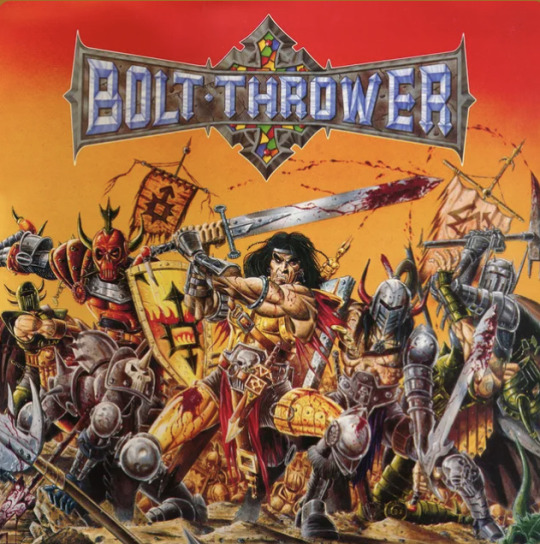
Bolt Thrower - War Master
Jesus Christ bolt thrower’s albums are just so god damn fun. The whole thing feels so insanely epic. It has to be some of the best music to just hang out to and feel powerful. I myself have a toe that’s fucked up and am cramped to hell so I’m laying in bed and thinking about this absolutely insane album.
The riffs are just so over the top. I particularly like how they really do a great job at charging them forward almost march like. Like you get the feeling that some insane fantasy army would be marching to the beat of these riffs. On top of that the soloing is all over the place from more melodical epic and triumphant solos to one’s that feel like absolute chaos just hurtling up and down the fret board.
The vocals are also just so fucking powerful. Bolt Thrower albums always just feel like they’re the perfect thing to get yourself all hyped up. Definitely definitely definitely check out this record if you haven’t already.
#now listening#album recs#metal#grindcore#death metal#punk#brutal death metal#music recs#music#cw: gore#bolt thrower#classic death metal#classic album#old school death metal#War master#classic album review#metal recs#alternative music#alt music
33 notes
·
View notes
Text
Queen's Hot Space Era: A Deep Dive
Masterlist

I’ve been thinking over this album and era more than usual lately, and decided that I’d write this up. Perhaps as a way to extricate all the Queen knowledge from my head, and the era in question takes up quite a lot of RAM.
The Hot Space album, and era, is very controversial and to this day garners a polarising set of opinions amongst fans and critics alike. So I just thought what the hell, let’s let everyone know what the hell was going on with Queen in the early 80s.
The Hot Space album was the 10th studio album by Queen and was released on the 21st May 1982. It had elements of disco, funk, R&B, dance, and pop, which was very different to what Queen had been doing throughout previous albums. The dance elements of this album was supposedly inspired by the success of Another One Bites The Dust, released in 1980.
Another One Bites The Dust was extremely successful in the US and the UK, the two largest marketing countries in the Western world, at least at the time—and Queen aimed to prolong that success.
The band started recording for Hot Space in June of 1981, and spent a gruelling 10 months on the project before wrapping up the production element in March of 1982. Upon its release, fans and critics found it disappointing. Stephen Thomas Erlewine of Allmusic said “the band that once proudly proclaimed not to use synthesisers on their albums now dramatically reversed course, dedicating the entire first side of the album to robotic, new wave dance pop, all driven by drum machines and coloured by keyboards with Brian May’s guitar coming in as flavour only on occasion.”
The fourth track on Hot Space, Body Language, has been dubbed the worst song in Queen’s discography by fans, and the whole album received no more than a 3-star rating overall.
Rolling Stone gave them a 3-star, whilst the Encyclopedia of Popular Music gave a 1-star… Yikes.
Hot Space is one of the more obscure Queen albums to those who are not currently, or have ever been, active within the fandom. So we’re going to break it down a little bit, and let’s just talk about the background and context of what the hell was going on with them.
So in 1981, Queen recorded Under Pressure with David Bowie, and it’s still considered one of Queen’s staple and most popular songs. It was recorded in Montreux, and was a completely separate project to Hot Space. The band had met up with Bowie and jammed together for a while, just to see if they could come up with something to lay down and master. Of course, as most people know, bassist John Deacon came up with the iconic Under Pressure bass riff, just before they all went out to get some pizza. And by the time they’d returned to the studio, he’d forgotten it! But luckily drummer Roger Taylor remembered it.
Now, this was the first time Queen weren’t working alone; they were used to working only with their producers, never having had anyone else’s input. The two artists merged as one for the song and it pointed in the direction of a potential new road for Queen—it was looking like an exciting one.
But what went wrong during the recording of Hot Space?
Brian May recalls that there was a total change of life for all of them. They travelled to Munich and according to Brian, that’s when things started to go downhill.
Let’s talk a little bit about the studio in which they recorded the album in Munich. It was situated in the basement of a hotel, and it was called Musicland Studios. It closed in the 90s due to some road issues, so it’s no longer open. But Brian remembers this place being grim and depressing.
The band’s mental health started to deteriorate after learning some unsettling details about the place. In Brian’s words:
“A lot of people used to jump off the top of the building and kill themselves off that particular building. We didn’t know that until we got there.”
The urge to finish recording grew, and they spent months at the hotel.
The aim was to create an album that focused more on the dance elements of music due to the success of Another One Bites The Dust, as I mentioned before. They seemed to be in luck, as Freddie Mercury’s entourage at the time was concentrated with dance influences in the form of Paul Prenter.
Now, who was Paul Prenter, you ask? If you’ve seen the film, you’ll kind of already know, but here’s a bit more of an in-depth look at him.
Paul Prenter was Freddie Mercury’s personal manager from 1977 to 1986. Despite their professional relationship, the two also engaged in intimate relations, and Prenter had a huge influence over Freddie’s life during the time he worked for him. He held partial responsibility for Freddie’s excessive involvement in drugs, alcohol, and his growing promiscuity.
Freddie was known to have fired Prenter in 1986, and shortly after it was plastered all over the news. It turns out Paul Prenter had sold personal stories to the press about Freddie… What a dick.
After receiving money from multiple press outlets, he moved back to his hometown of Belfast and spent it all—smart. He then asked Freddie for more money! After all that, he went back and asked him for money! But it’s okay, he did succumb to complications from AIDS a few months before Freddie. So… Freddie got the last laugh, it seemed.
You’re probably wondering what Paul Prenter had to do with Hot Space. After all, he wasn’t part of the band, right?
Well, Freddie’s life was ruled by the New York-inspired gay lifestyle of the 80s, particularly engaging in extreme partying and extreme promiscuity. And at the time, Freddie had suggested to the band that the music on their new album should sound like that of which they’d play in a gay bar, but those words had initially come from Paul Prenter.
It’s said that Prenter despised guitars and relentlessly referred to Brian May as old-fashioned. Roger Taylor recalled that Prenter was a “very bad influence” on the band:
“He was a very, very bad influence upon Freddie, and hence on the band. He very much wanted our music to sound like you just walked in a gay club, and I didn’t.”
The strain and tension became inevitable with the four personalities—and we all know that John, Freddie, Brian, and Roger have massive personalities. Whilst they had always experienced bickering, as most bands do, they now with the added tension, the production of the album isn’t going to go as smoothly.
“Arguments would start off as creative, but slowly became personal.”
Brian recalls that less and less time was spent in the studio and more time was spent arguing.
To put it into perspective about what life was like for the 10 months they spent recording Hot Space in Munich…A regular day recording this album went a little bit like the following:
The entourage recall waking up at 3am, working for hours, having dinner, and then roadies would mix up cocktails and other things would pursue. The band got mixed up in cocaine and various other drugs. Random women, and relentless drinking, and as any sane person will tell you, that is not a good thing.
Roger described it as an exhausting cycle day after day. Imagine doing that for 9 whole months.
Brian remembers them getting into “deep trouble emotionally” in Munich, which possibly explains why their mental states deteriorated.
Now, the Hot Space era didn’t just end when the album came out. Obviously, when an album comes out, you have to do interviews to promote your album and after months and months of bad influences and arguments, the band’s relationship had kind of broken down. Things continued in quite a tense fashion.
In fact, Freddie was left very unhappy and depressed after Hot Space wrapped up—it lasted a while, and he was completely immersed in places and habits that remained detrimental to his fate. Freddie became passive during interviews and defensive on certain questions concerning anything but current projects.
His attitude during the 1982 press conference in Europe was already standoffish and it was extremely obvious that he didn’t want to be there. The body language of the others, especially Brian, speaks volumes. The mood is low and they all seem exhausted.
Another nationwide interview the band gave in promotion for the album presented the group separated; Freddie was notably disinterested as the others spoke. There was even a moment where Freddie responds to the interviewer’s question with “let’s break up tomorrow” as a joke. But, watching it, you can’t help but feel there’s some truth to his words. Nobody laughed, even Roger looked uncomfortable by it!
One of the more well-known interviews from this era was with Brian and Roger, which displayed multiple moments of awkwardness with them both trying to make jokes and seem like they’re happy with what they’d produced, making up amateur excuses as to why they created something with a different sound. In my opinion, they just didn’t seem very happy. Do we even need to mention the “shut up” from Roger, and then the succeeding comment from Brian about Mack having the best drum sound?
Then, we have the iconic 1984 Freddie interview, where he left viewers stunned with his answers:
“I love my job, but I hate talking to people like you,” “I’m not an artist, I’m just a musical prostitute, my dear.”
The long-term effects of what happened behind the scenes of Hot Space were everlasting and turned the group into four completely different people than they were prior to 1982.
As I’ve already mentioned, Hot Space wasn’t received well upon its release, and there are still very strong opinions about it today. Brian stated in 2014 that it isn’t the band’s worst album, but the timing of its release was just wrong. As time goes on, more people begin to accept the Hot Space album as just another reason why Queen is one of the most versatile groups of all time, with them branching out into very different styles to what they’d done earlier in their career, like Sheer Heart Attack, News Of The World, etc…
80s culture looked down upon disco and funk, so reception for Hot Space was bound to be less than amazing. However, today, all styles of music are simultaneously celebrated, and people enjoy the album more now than they did 40 years ago.
So in conclusion, recording Hot Space was a difficult period for Queen. It’s horrible to think about your idols going through the kind of thing they did in the early-mid 80s, influenced by not very nice people. But focusing on the album itself, it’s truly not a bad album at all. Granted, the timing of the release wasn’t the best for Queen, but it holds up as a fan favourite today.
If you haven’t heard any of the songs from Hot Space, besides Under Pressure, I highly recommend you check it out. It’s very different to what Queen usually did and I think it’s worth a listen.
Anyway, I’ll leave it at that. Let me know if you liked this little… post, whatever the hell it is, and if I should do more posts like this. I enjoy throwing all my useless knowledge onto a page lol.
#80s#1982#hot space#queen#queen band#freddie mercury#brian may#john deacon#roger taylor#music#album#80s music#album review#album recommendation#deep dive#classic rock#music history#music deep dive#queen deep dive#biography#article#music article
8 notes
·
View notes
Text
330: Clara Rockmore // Theremin
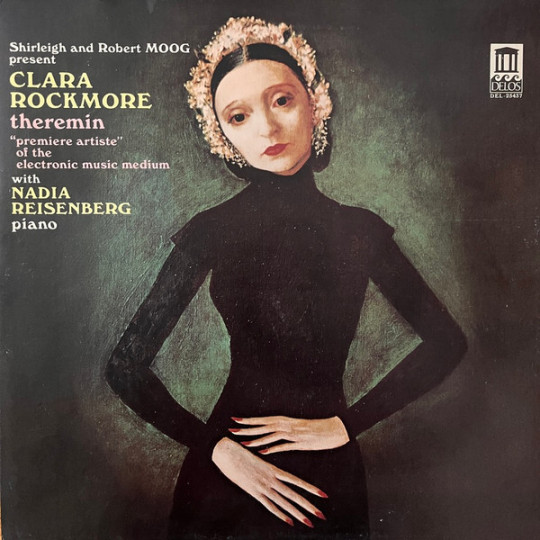
Theremin
Clara Rockmore
1977, Delos (Bandcamp)
100 years since its invention, the theremin remains an oddity. It is in every respect an antiquated piece of technology, and yet like the Tesla coil and the plasma globe it still provokes the primal wonder of science-as-magic. The advancements of a modern synthesizer unit are hidden from the eye—if you presented it to an unthawed person from the 19th century, they would at least be able to infer that the device is controlled using the buttons and keys. But the theremin player creates sound by coaxing an invisible magnetic field with their bare hands, as though they are pulling its warbling voice from the air itself—and indeed, inventor Léon Theremin’s artful original name for his instrument was the ætherphone.
youtube
To watch a performance by Clara Rockmore, the instrument’s foremost practitioner, is to see something that resembles a scene from a séance or a German Expressionist film. A petite, dark-haired woman with the eyes of an Orthodox Virgin Mary, she would stand ramrod straight behind the lectern-like theremin, nearly motionless save for the almost palsied-looking convulsions of her knotted hands and the tensing of her eyebrows, the only sign on her otherwise slack features of the intensity of her concentration. She looks as though she is forcing down the song attempting to leap from her throat until it screams through her fingertips like steam from a kettle. As synth pioneer Robert Moog explains in his liner notes to Rockmore’s 1977 LP Theremin, her absolute stillness was not a theatrical device but a requirement of playing the instrument: the theremin’s magnetic field encompasses not only the performers hands but their entire upper body, meaning that even a minor motion of the head will influence the instrument’s pitch. But the austere figure she cut no doubt contributed to her allure, the sense that she was herself as unearthly as the instrument she played.
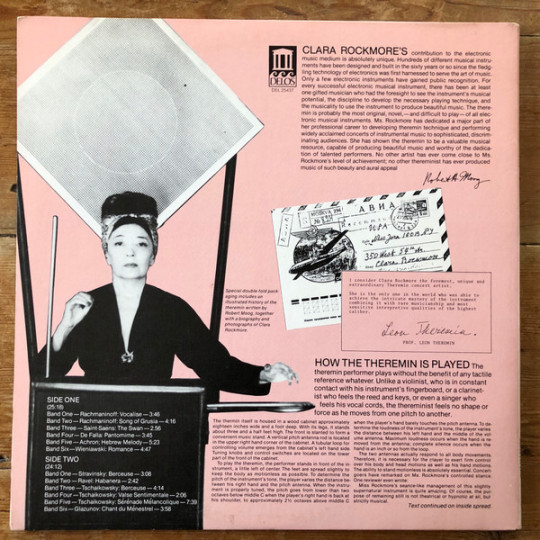
Rockmore, a violin prodigy since age 5, took to Theremin’s invention sometime in the late 1920s. Her concerts popularized and legitimated the instrument, but it would be nearly a half-century before the Theremin LP, her first, was finally released. Produced by Shirleigh Moog and engineered by her husband Robert, one gets the sense that the Moogs are fans trying to correct an oversight, to record the album as it would’ve sounded if it had been made her during her prime. The results are captivating, even haunting. At times you may be fooled into thinking you’re listening to a recording of a human soprano from some decayed shellac disc; in other moments, you will be moved by how world-weary an electronic tone can sound. Rockmore is accompanied, as she had been since the beginning, by her sister Nadia Reisenberg on piano, and her selections focus on 19th and early 20th century compositions, with a heavy emphasis on the Romantics. A majority of the pieces here come from her fellow Russians, including Tchaikovsky, Glazunov, Rachmaninoff, and Stravinsky. My personal favourite of these is her take on Joseph Achron’s “Hebrew Melody.” Inspired by traditional laments, Rockmore’s theremin evokes the sobbing characteristic (krekhts) of Jewish vocal music, while her sister thunders and pirouettes on her piano in a classically Romantic style.
Theremin stands apart from other electronic classical records like Wendy Carlos’ Switched-On Bach because it never sounds wholly like a novelty despite the theremin’s high camp potential (and, for that matter, Rockmore’s). It is peculiar, and my fascination with it definitely originated in a perverse nostalgia for esoteric junk—but the somber beauty of the sisters’ performance wiped the smirk from my face from virtually the moment I dropped the needle.
330/365
#clara rockmore#theremin#leon theremin#robert moog#moog#shirleigh moog#electronic music#early electronic#romantic music#'30s music#'70s music#classical music#nadia reisenberg#music review#vinyl record#mississippi records#joseph achron#tchaikovsky#rachmaninoff#glazunov#achron#stravinsky
8 notes
·
View notes
Text
Is It Really That Bad?
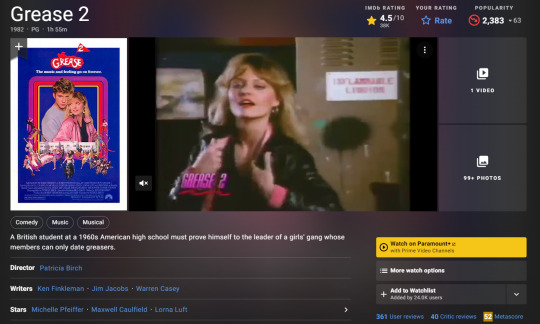
Grease is a delightfully corny musical filled with 50s nostalgia (mostly the good kind) and helped shoot the careers of John Travolta and Olivia Newton John to new heights. There’s a little bit of values dissonance here and there, but considering when it was made and what decade it was about, it could honestly be a lot worse. It’s easily one of the most fun and enjoyable musicals ever made, and it should come as no surprise the Library of Congress deemed this film significant enough to add to the National Film Registry. Is it any surprise a film like this had a sequel?
Well, yeah, kind of. Paramount didn’t think the movie was going to be much more than a modest one-off hit when it came out despite the 50s nostalgia of the time, mainly due to the spectacular failure of Columbia’s musical adaptation of Lost Horizon being such a spectacular bomb. Why risk making musicals when it seems they’re on the way out, right? But then Grease unexpectedly became one of the biggest films of 1978, and the execs got little dollar signs in their eyes. Sequel time, baby!
One problem, though: None of the original cast was available. Or, I should say, none of the original cast you’d give a fuck about was available. Travolta and Newton-John were already off to bigger and better things, which is a shame since they were both interested before it took them forever to get a script. Only Didi Conn (Frenchy) and Eddie “Mandark” Deezen (Eugene) were coming back. And, look, I love Dexter’s Lab but that wasn’t going to be made for like twenty years or something, so Eddie wasn’t Travolta-levels of star power. Still, Paramount was dead set on turning Grease into a massive franchise. We’re talking spin-offs, sequels, a TV series, the works!
But then the screenwriter for the original died, and the original director went off to make The Blue Lagoon. Of course, they found great backups! The screenwriter is a Canadian comedian who wrote Airplane II (the less funny one) and the director was the choreographer of the original stage and film versions of Grease! How reassuring! And then basically all of the actors they actually wanted in this didn’t end up getting in. For the male lead they wanted Timothy Hutton, but when that didn’t work out they tested Andy Gibb… who failed. They then went with an unknown, Maxwell Caulfield, and casting an unknown is always a gamble. For the leading lady, Pat Benatar and Debbie Harry were considered before they ended up going with an unknown by the name of Michelle Pfeiffer. And guess what! Those two ended up hating each other.
Oh yeah and the final draft of the script was only finished midway through production, without Frenchy in it despite her actress being there, so they just tossed the scenes they’d filmed into the movie anyway.
The end result was savaged by critics and did not really make enough to warrant the massive franchise Paramount was hoping for. The careers of most of the actors involved were damaged pretty bad, especially Caulfield, though Pfeiffer managed to et out mostly unscathed. Overall, the film was just a mess that these days is relegated to lists of the worst sequels ever. Hell, unless you read lists like that you might be unaware this film even exists, because it’s relatively obscure.
Still, it does have its fans, including Andrew Garfield of all people. It’s something of a cult classic in some circles, so surely there’s something of value to be found here, right? Is Grease 2 really that bad?
THE GOOD
Michelle Pfeiffer is pretty in this.
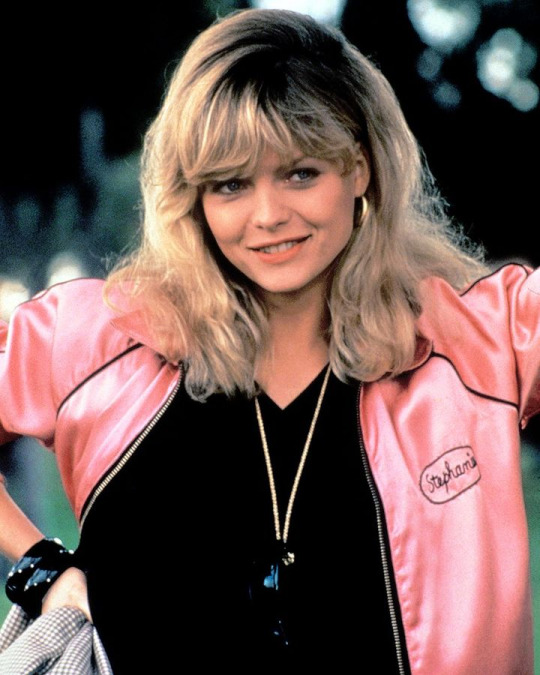
...No. Really. That’s it.
THE BAD
This film’s biggest problem is just how overexaggerated everyone’s performances are. Like all of the dance numbers feature every single character mugging the camera and just making the most absurd faces and movements, like this is a live action cartoon. And look, I love goofy, campy silliness, but there’s a fine line between corny and trying way too hard and this is firmly in the latter camp. Every single number is just ruined by this insufferable desire to be silly.
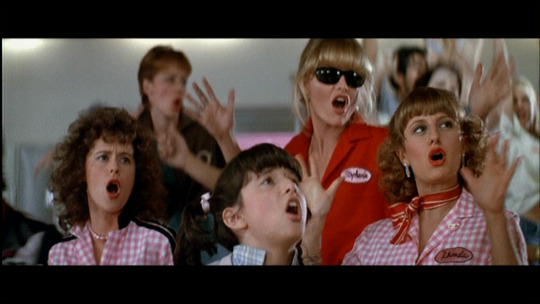
The other biggest problem is the songs. All of them suck. All of them are also about sex, and that doubly sucks. None of the lyrics are very clever, but all of them are fucking stupid. This might just be one of the horniest movies ever made, and I mean that as an insult. I’ve watched pornos less obsessed with sex than this film. This is all the more jarring because the first film was just filled to the brim with fun and memorable songs, but here? They’re all forgettable crap with no clear identity.
youtube
Maxwell Caulfield is a terrible leading man, and I say this as someone who has a hard time believing John Travolta is a leading man. At least with Travolta he does exude a sort of movie star quality; Caulfield just feels to me like a cardboard cutout of a person, or an even more wooden Anakin Skywalker than what we got in Attack of the Clones. Caulfield is just an absolute void of charisma, and it’s no wonder Pfeiffer thought he was a stuck up little shit.
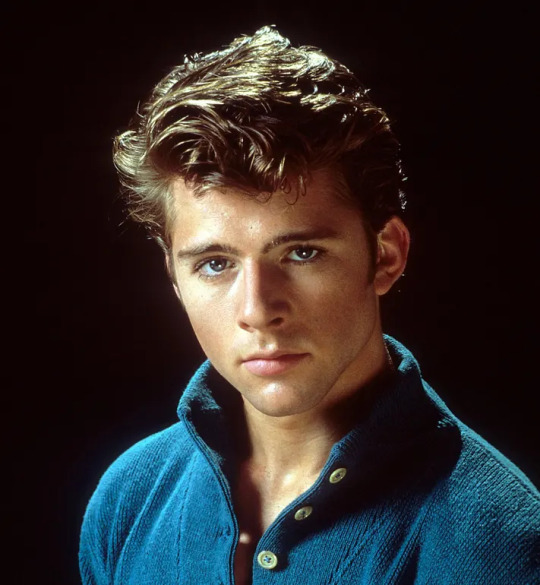
IS IT REALLY THAT BAD?
Uh, yeah. It’s fucking bad.
I really wanted to enjoy this. I really did. I love stupid, campy, silly musicals! This should have been perfect for me! And yet it was one of the most tedious, miserable viewing experiences I’ve ever had. I didn’t laugh. I didn’t smile. I was not once charmed or amused by anything I saw onscreen. As a matter of fact, there were times where I just wanted to turn it off because it was just such a slog. The extended cut of Dawn of Justice is a more well-paced and riveting film.
Look, if you like this movie, more power to you. Lord knows there’s plenty of trashy films I absolutely love that many people wouldn’t agree with. But in my opinion, Grease 2 just doesn’t work, and the reason why is because it’s Grease 2. If this film was just its own thing and not trying to coast on the fame of its superior predecessor, maybe I’d be a little more forgiving. But that’s not the world we live in. We live in a world where this film with tenuous connections to the original is allowed to call itself a sequel.
I’m gonna say that score is a little too nice, and this movie deserves something more like a 2. It’s not the worst thing ever and it’s sure to appeal to some folks, but boy is this just plain not a good film in my eyes. It really just feels like it's trying way too hard to be the original, and it's failing miserably at it at every single turn. It is one of the worst movies I've ever watched, but at least it's a bad movie where I can almost see the appeal. It just doesn't appeal to me.
#is it really that bad#review#movie review#Grease#Grease 2#michelle pfeiffer#maxwell caulfield#musical#movie musical#cult classic#so bad it's good#Youtube
26 notes
·
View notes
Text

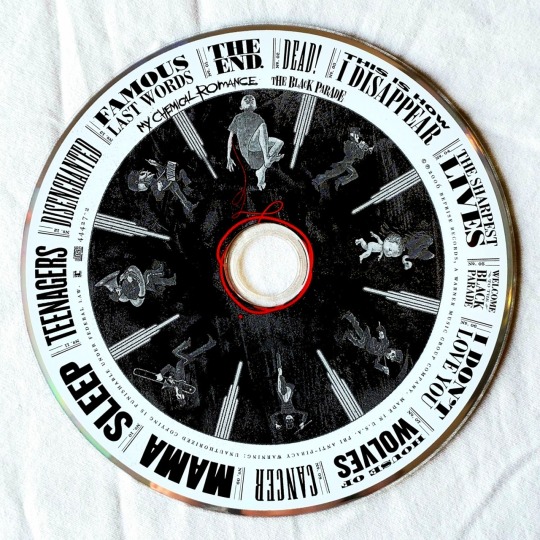
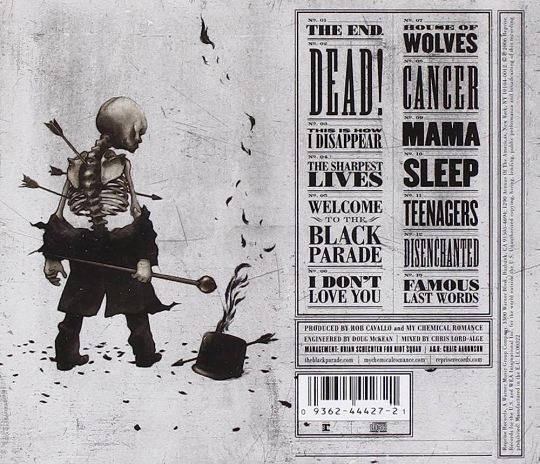
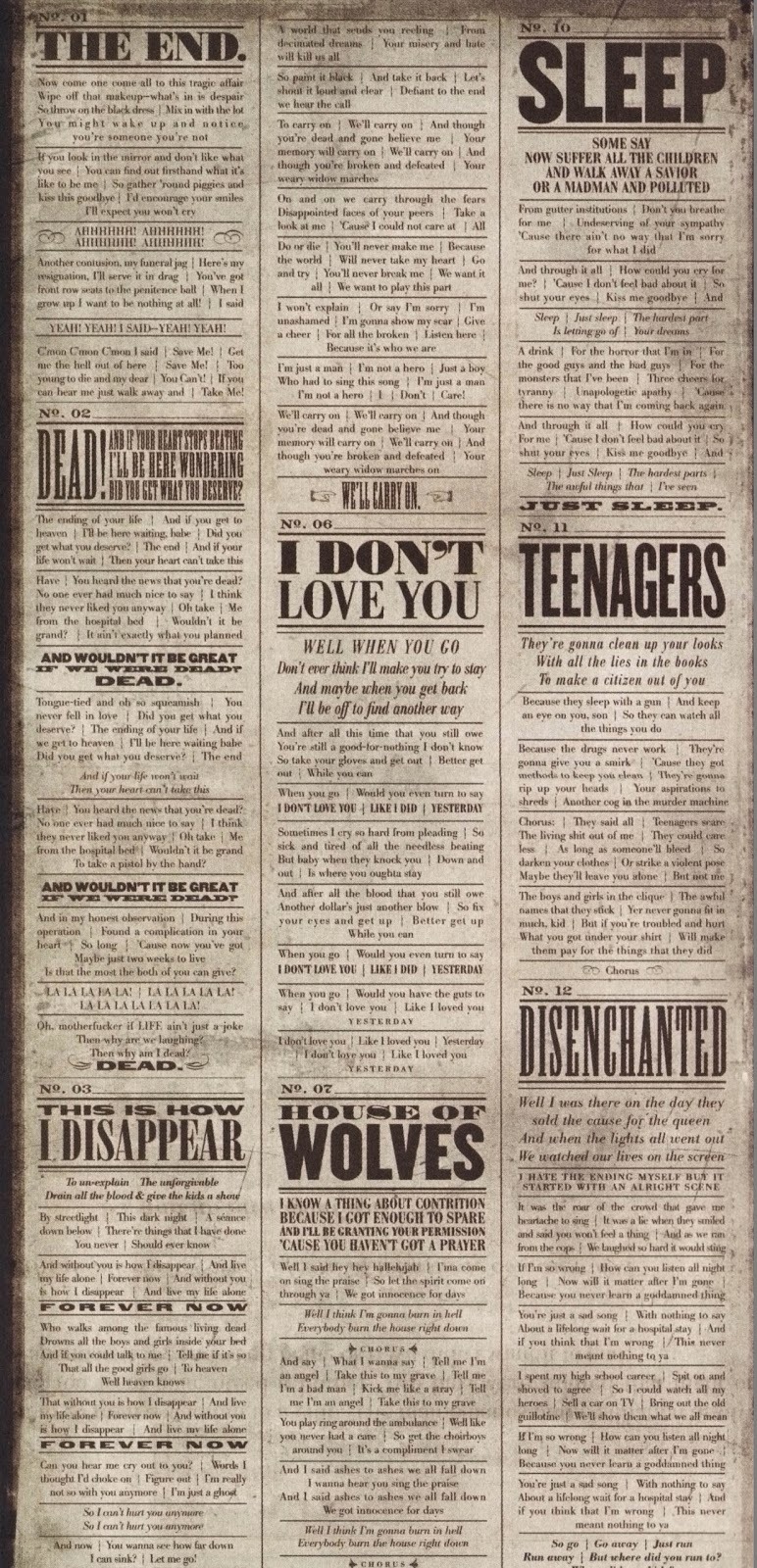


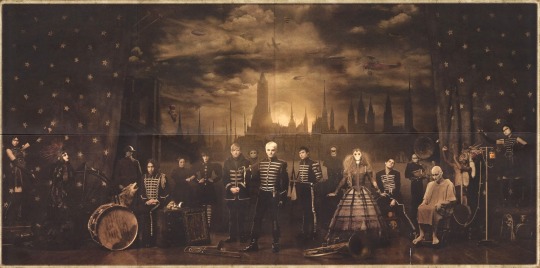
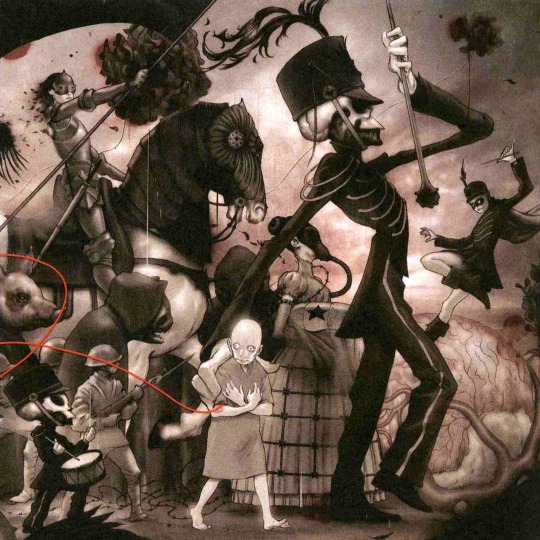
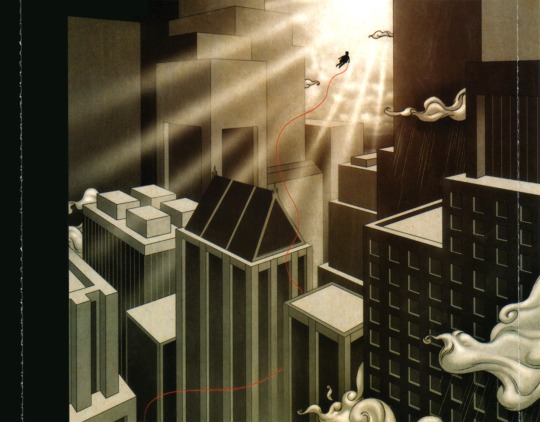
𝐓𝐡𝐞 𝐁𝐥𝐚𝐜𝐤 𝐏𝐚𝐫𝐚𝐝𝐞 (𝟐𝟎𝟎𝟔) 𝐛𝐲 𝐌𝐲 𝐂𝐡𝐞𝐦𝐢𝐜𝐚𝐥 𝐑𝐨𝐦𝐚𝐧𝐜𝐞 | A REVIEW
ALBUM SCORE: 10/10
Rock Opera Extravaganza!
The pinnacle of My Chemical Romance's career. The Black Parade shaped a generation.
A story about a patient's journey of facing death, My Chemical Romance captured it all in the most dramatic manner by their unapologetic and brutal lyricism. No album captured an energy as intense as The Black Parade delivered.
The unnecessary hatred this had and still has, the thriving growth of the, so called, "emo culture", the lives it saved and the temporary demise of the band itself made this album an instant modern classic.
Checkout my AOTY profile for more reviews: https://www.albumoftheyear.org/user/humanoid-/
#my chemical romance#the black parade#music review#pop punk#alternative rock#rock opera#00s music#modern classic#album review#gerard way#frank iero#ray toro#mikey way
32 notes
·
View notes
Text
Superfan's Short Movie Reviews: "Wish"
From an animation studio that has now been around for a century, Disney's Wish is the kind of feel good movie you can take the whole family to see, and I mean that sincerely. This enjoyable feature has catchy songs, fun characters, and nice callbacks to the studios classic films but with a modern touch. A great mix of the old and the new.
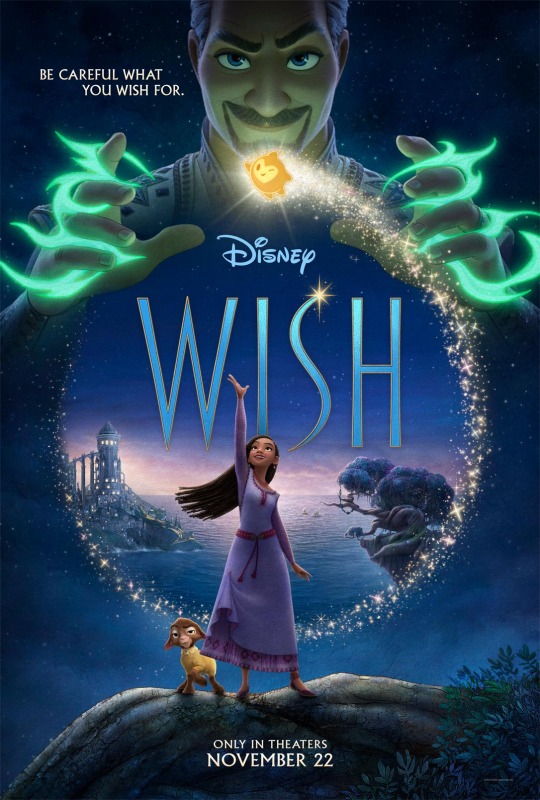
#movie reviews#animation#disney#wish#100th anniversary#asha#valentino#star#king magnifico#sincere#fun#music#family entertainment#feel good#heartwarming#fairy tale#classic#modern#magic#kingdom#rosas
7 notes
·
View notes
Text
Astor Piazzolla
Astor Piazzolla
I’ve been watching PBS’s rebroadcasts of the Lawrence Welk Show with episodes from the 50’s to the final year the show was broadcast. From black & white to psychedelic colours. A few members were in the band from the beginning of the show – one is accordionist Myron Floren who exemplifies what I dislike about the accordion – polkas & Lady of Spain. But Argentine Astor Piazzolla…
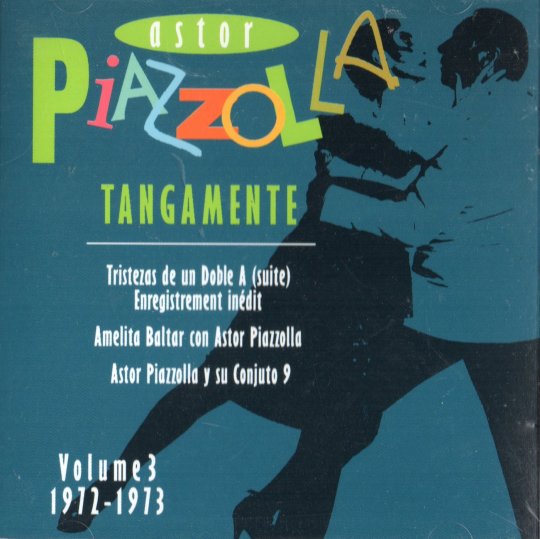
View On WordPres

#accordion#am writing#Astor Piazzolla#jazz#Jazziz#Lawrence Welk#modern classical#music#Myron Floren#Ontario#photographs#review#tango#Toronto
4 notes
·
View notes
Text
Review of Schubert: Symphonies Nos. 8 "Unfinished" and 9 "The Great," with Jordi Savall and Le Concert des Nations
The year 2022 must have been the year of Schubert, with at least three major sets of the composer’s Symphonies Nos. 8 and 9 appearing, one from Herbert Blomstedt and the Gewandhaus Orchestra (DG), another from Rene Jacobs and the B’Rock Orchestra (Pentatone), and this newest and best one of all from Jordi Savall and Le Concert des Nations (AliaVox). Such extraordinary attention couldn’t happen to a nicer composer.
To read the full review, click here:
John J. Puccio, Classical Candor
#Classical Music#Classical Music Reviews#Classical Music Albums#Classical Music Album Reviews#Music#Music Reviews#Music Albums#Music Album Reviews#CD#Compact Disc#Schubert#Jordi Savalll#Le Concert des Nations#AliaVox#symphonies#symphony
2 notes
·
View notes
Text

My mission to watch 80 x 80s movies continues with the greatest movie of all time, despite what Spider-Man thinks, Footloose. If you have not seen this movie, you need to ask yourself why. Great soundtrack, amazing acting with a solid and thought provoking story. Let's not forget also has the best dancing angry in a barn scene to ever appear in a movie as well.
Tippy-top marks!
⭐️⭐️⭐️⭐️⭐️
4 notes
·
View notes
Text
track thursday #2 | club classics - charli xcx
Yeah, I wanna dance to me
I wanna dance to A. G.
I wanna dance with George
I wanna dance to SOPHIE
I wanna dance to HudMo
...
charli xcx is releasing single bangers here and there and im loving it, and 'club classic' is no different. this chilling dance track is epic and moving, with an atmospheric taste of synths, making this track an unique and one-of-a-kind experience. a.g cook is cooking again! a honerable mention to the b-side 'b2b' too.
istg bro 'brat' will be the album of the summer.
#track thursday#music#music related#music review#single#track#track review#club classics#charli xcx#a g cook#dance#edm#pop dance
2 notes
·
View notes
Text
Shoegaze Classics - Xuvetyn
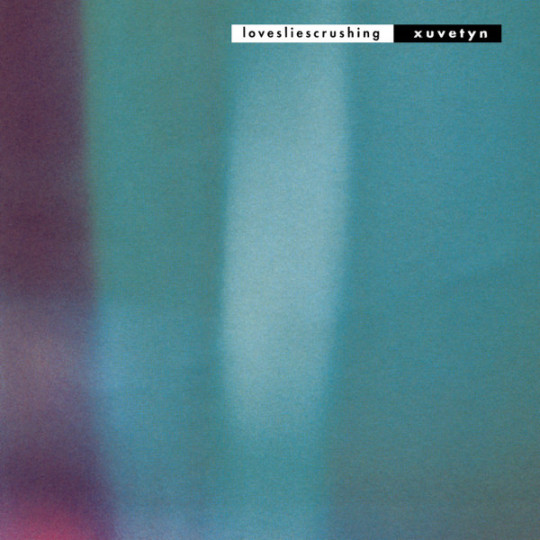
Xuvetyn - Lovesliescrushing (1996)
Main Genres - Ambient, Shoegaze, Ethereal Wave, Experimental
A decent sampling of: Drone, Noise, Dream Pop, Post-Rock, Neo-Psychedelia
I'm not gonna lie - I'm super excited to gush about this record. I've been meaning to get around to reviewing this bountiful, fascinating little gem for years now. Let's hope that I can do this often unsung masterpiece the much needed justice that it deserves.
🙙
I touched on this previously in my Ride review, but for all of the talk of the 'Big 3' of shoegaze, I think that many of the younger shoegaze fans these days would agree that Slowdive and My Bloody Valentines' discographies are a cut above the Ride catalogue. Not to diss on the band, but the Big 3 is really starting to feel more like a Big 2 these days, with Slowdive's relevance to new fans only increasing over time whilst Ride's relevance seems to be stagnating.
This has left a potential vacuum in the consensus online. Don't get me wrong; plenty are still going to champion Ride as one of the giants of shoegaze, and most folks that were around for the original scene that celebrated itself are most likely still diehard for Ride as the scene's closest group to being mega rockstars.
But in terms of the legacy of 90s shoegaze, could there still be a record that is missing from all-time canonization? One that has oft been overlooked when discussing this supposed "Big 3"? Is one of indie rock's most beloved and revisited eras still hiding an elusive diamond in the rough?
In case it wasn't already obvious, that's the case I'm going to be making today. And I don't think I'm entirely alone on this one. Few shoegaze bands from the 90s have had such a considerable late resurgence like this band, though they've always had a cult following.
Today I'll be making the case for Lovesliescrushing, the creative juggernauts behind the 1996 experimental ambient shoegaze masterpiece Xuvetyn.
The Band
Lovesliescrushing are one of the rare American bands of the original 90s wave.
The project began in 1991 as the brainchild of avant-garde guitarist and producer Scott Cortez, who teamed up with the apparitional soprano voice of singer Melissa Arpin-Duimstra, a vocalist who more than any other shoegaze vocalist before or since has dedicated her artistry to using the singing voice as a medium to carry and modulate the properties of sound timbre first and foremost.
Daringly, Lovesliescrushing as a band decided to forego having a rhythm section altogether. Not even a drum machine. The band's radical ethos right from its inception would seem to have been to distill shoegaze rock music down to a purified elemental substance, achieving the platonic ideal by creating an undisturbed solution of dense and glorious blended textures.
Indeed, where reverberated guitar sounds with bizarre effects and blended vocals were what set apart bands like Swervedriver, Catherine Wheel, and Curve from being otherwise ordinary indie/alternative rock bands, the qualities I just described encompassed the near-entirety of Lovesliescrushing's early output, taking the concept of the subgenre to its logical extreme.
The band pioneered what is essentially the fusion of ambient music and shoegaze, a match made in heaven as far as I'm concerned. This marriage of genre ethos would give way to some of the most unyielding sublime auditory sensations that I have ever been so fortunate to have experienced.
Lovesliescrushing also had one foot steeped firmly in the murky waters of ethereal wave (particularly on the sophomore record), the goth subgenre which served as shoegaze and dream pop's most apparent predecessor and influence. Indeed, some of the band's material can be seen as building upon the prototypical blueprint that can be found in Cocteau Twins' fourth LP Victorialand which similarly removed the rhythm section in order to create pure blissful atmosphere.
Some may see Cortez's work as hero worship, and I've heard a dozen or so folks accuse this band of being "My Bloody Valentine without the melodies and drums", but this is a grossly reductionist take that does a huge disservice to just how brazenly groundbreaking and experimental this band's early work was at the time and still remains to this day.
Lovesliescrushing also regularly made their foray into other schools of experimental music like drone, sound collage, and harsh noise, incorporating these ideas into their creative process. Some of their material even sounds like experimental music with no apparent roots in any particular legacy whatsoever.
This is honestly some very radical music. I can't think of much of anything really quite like early Lovesliescrushing. Perhaps MBV is one of the closest points of reference, but then only because they were a shoegaze band that also sounded quite unlike anything at the time.
Information on the beginnings of this band is scant on the internet compared to many other shoegaze artists, and they were never well-documented by the alternative music press the way that bands like Slowdive or even Catherine Wheel were. And as far as the North American scene goes, Drop Nineteens definitely overshadowed their popularity.
I think it's a fair assessment to say that Lovesliescrushing were truly underground in the band's formative years. I remember only as far back as 2017, when I was just getting into this band through online recommendations, that even many avid fans of Slowdive and MBV had never even heard of this band. But I digress.
Lovesliescrushing released their debut LP Bloweyelashwish twice: first as a casette tape in 1992 on their own indie label with a shorter track listing, and then as a longer full-length album in 1993 on Projekt Records, with newer recordings and mastered versions of the songs.
Bloweyelashwish is a beautiful record in its own right. More generally noisy and droning than its successor, with crunchier guitar sounds, blown out distortion, and a listless melancholic atmosphere. Somewhat closer to very early Sonic Youth, or some of A.R. Kane's weirdest output. What the record does somewhat lack, at least in comparison to its successor, is relative cohesion.
Nevertheless, some very brilliant tracks on the debut LP. "Babysbreath" is music for when you need to smother your tears in a pillow with all of the lights off, "Sugaredglowing" is one of my favourite ambient tracks ever (and a surprisingly potent form of migraine relief), and "youreyesimmaculate" is a stunning and ethereal foreshadowing of what was to come next.
Speaking of which...
The Record
Xuvetyn is... what even is it?
Xuvetyn is a series of documented sound frequencies that would be made by a sentient, shimmering blue light galaxy consisting entirely of trillions upon trillions of frozen ice shard particles. Alternatively, it is the contradictory sound of the bitter coldness of the universe itself caressing the listener in a warm cocoon.
The fact that most of all of this is accomplished with guitar, pedal, vocals, and some studio effects here and there is still unfathomable to me. That is an incredible feat in itself.
Judging solely by the ability to create awe-inspiring atmosphere, I don't believe that there is any other shoegaze band that has managed to accomplish the level of mastery that Lovesliescrushing consistently demonstrates on this record. Yes, If Loveless was the zenith of shoegaze texture, then Xuvetyn is the zenith of shoegaze atmosphere. Completely surreal and captivating.
As I've described the band's sound itself, Xuvetyn really is the concept of shoegaze distilled into its essence, then manipulated ever so slightly with a delicate songcraft and expertise, in order to give these tracks a semblance of form and structure. But make no mistake - there is no solid seabed foundation to this ocean of resonant sounds like there would be on any other shoegaze record. No, this is just infinite, icy sonic fluid that flows all the way down into a multi-dimensional abyss. And holy fuck is it ever beautiful.
Which is not to say that there is no songwriting here - just that it is incredibly subtle. But also incredibly effective.
People who generally don't care for or listen to ambient music often stereotype the genre as being uninteresting, low-effort, or too non-descript, when in fact all of the truly greatest ambient musicians know that making a masterpiece is about learning how to do miraculous things with precious little. It requires immense patience (as does the listener sometimes), a keen ear for detail, and meticulous perfectionism. Unsurprisingly, Scott Cortez strikes me as being just that kind of guy.
The album is a double LP in length, with an hour and sixteen minutes runtime and a listing of 18 tracks. Most songs generally run over the five minute mark, with the A, B, and C sides of the record all padded out every one or two tracks with these really curious little intermissions that are generally less than a full minute each.
These intermissions are often the most experimental recordings on the album, like the abrasive hailstorm noise collage of "Aquan 1" and the gloomy factory white noise of "Hum VIbralux". I could see how someone might want to omit these, but personally I think it adds to the record's pacing by giving it room to breathe, and they made the right decision to let up for the last set of tracks. Plus, the little intermissions are all so deliciously weird that it kinda reminds me of the way that your brain will just plant these bizarre, inexplicable little blips in the middle of your dreams sometimes.
Also hey, can I just nerd out about something really silly for a second? Has anyone ever noticed how a bunch of the track names on this record end in an "-ed"? "Threaded", "Handed", "Blue-Eyed", "Honeyed", "Blooded". Just another cute little detail, adding to the esoteric nature of this record, and I appreciate the alliteration.
OKAY, let's just get to the track by track analysis already.
Admittedly this is one of those records that hits you with the very best it has to offer right out of the gate. Listening to "Valerian (Her Voice Honeyed)" is among the most sublime feelings I have ever experienced in my life, literally ever. Not just in music but like, anything.
Think of any familiar place, or perhaps a virtual space in a piece of media, that held a sort of transcendental significance to you during your childhood, as though it carried a life of its own, a place that you may have revisited in your warmest dreams - for me, it's the lost woods in Ocarina of Time. Think of the sensation that those transcendent spaces would give you.
This track is that same sensation, only on steroids. As soon as that heavy ambient wall fades into the foreground and the sense of infinity takes hold, this gently flowing waterfall of dark sound matter creates a sort of window of reflection into wherever it is in your soul that you have ever felt the most at home. I get that music is a subjective experience at the end of the day, but I feel like what I just described would be inevitable for almost any listener, unless they simply weren't listening to this track the right way. One of the greatest songs ever? I'd wager a hard fucking yes.
The good news is that from here, you have only just begun your journey into a world of many more sublime and mysterious figures.
"Xarella Almandyne" is like the sound of a choir of angels in a massive hall the size of an entire city - the unknowable, lovecraftian, biblically-accurate seraphim kind of angel. Somehow soothing, yet oddly paralyzing at the same time. Based on this track alone, I must say that I'm not entirely convinced that Scott and Melissa are regular mere mortals of this world.
"Blooded And Blossom-Blown" is an eerie, gleaming, and loudly piercing void. I find the majority of the songs on this record to be overall comforting, sometimes somber and darkly mystifying if anything, but this might be the one odd track that genuinely unsettles me; in a way that I cannot get enough of, mind you. Compared to what we often call white noise, this piece represents sound that I visualize in the distinctly unnatural shades of negative blues and turquoises.
"Virgin Blue-Eyed" is a very rare departure in the band's early discography from their guitar ambience, focusing on the incantations of Melissa's euphonious elven voice, with clanging little bells in the background (which, funnily enough, technically makes this the most percussive track on either of the band's first two records).
My favourite of the intermissions is "Seesaw". Transitory shoegaze in a continuously elevating loop, like music for the loading screen that would take you to the shoegaze version of heaven, or perhaps the mythological world of Mag Mell.
"Golden-Handed" is soft, swirling, hypnagogic, and lamenting. This ambient ethereal wave track manifests as the faintest, loneliest light flickering in the gloomy hush of an otherwise dead midnight. Completely arresting atmosphere.
"Bones of Angels" is a two parter - first there's "Bronze Lit Feathers", a labyrinthine chorus of resplendent, inharmonious, and rippling guitar impressions, drifting almost aimlessly and forming only vague constellations with the help of Melissa's frail melody, and a foundation of ambient bass notes cutting through the discordance with great magnitude. This is contrasted by the second part "Her Tongue Pulled Out", wherein the sky parts and the drifting guitar sounds align into a shrill cry, forming a radiant column of sonic light, as if something gorgeous is beginning to descend upon the world. Music for high priestesses summoning divine power.
Xuvetyn reaches its second greatest peak with the penultimate track "Ghosts That Swirl", a piece which opens with this really foreboding orchestra of dreary, gargantuan ambient chimes, sounding as though the world around the listener was compressing in on itself and then stretching in and out of itself, like alternating waves in the membrane of the universe. This overture leads into an ominous, secluded, and crystalline dreamland soundscape, further removed from reality than any other track on the record, and unlike any other song that I have ever experienced. This is music that could only be dreamt up from the confines of a comatose slumber, wherein Melissa's whispers in your ear are the only traces connecting you to the corporeal world, though only audible as faint echoes far off in the distance of a seemingly endless cerulean.
I could go on all day but I've decided to end the track-by-track analysis here. The entire record is vividly evocative beyond what should be reasonably possible (and what I can convey words). You might get something entirely different from my descriptions of these tracks, but I guarantee that you will experience something unearthly.
What Came After That?
Lovesliescrushing followed up their first two records with a series of two records in 2002 that were more just straight up ambient music, rather than comprising an ambient shoegaze fusion.
The first of these is Glissceule, a similarly icy record to Xuvetyn with less dark edge and more of a reserved calm, plus more electronic elements. Second was the more ambiguous Voirshn which I enjoy significantly less than previous projects unfortunately.
The band has sporadically released more ambient records over the course of the last couple of decades, which I have yet to really deep dive into. Scott has worked on a few separate projects, most notably his other band Astrobrite which releases much harsher noise shoegaze records. Nothing from this band has really grabbed me like Lovesliescrushing's work, so I am not very familiar with it.
Like I mentioned previously, Lovesliescrushing's relevance in online shoegaze circles has seen a steady increase over time for a little while now. But Scott and Melissa have always been favs amongst the more hardcore followers of the scene, achieving an almost mythical status as figureheads of the experimental shoegaze micro-scene. And they're pretty much always one of the first bands I see people recommending nowadays when someone online says that they're looking for more "weird shoegaze".
And believe me, I'm one of those nerds recommending this band with every relevant opportunity that I can seize. This should be among the first dozen records we play when the aliens come down to Earth, in order to plead our case for the culture of humankind. This is a very special piece of art.
I won't pretend that this is going to be music for everyone, but if you really wanna transcend your corporeal existence in way that doesn't involve experimenting with potentially harmful substances, I can't really think of any better method. Xuvetyn is from beyond our plane of existence - some people native to our world (allegedly) just happened to manifest it one day.
Join me next time where, in case this review wasn't goddamn long enough, I will be doing a series of reviews on every major Slowdive release from the self-titled EP all the way up to their latest record 🙃.
10/10
Highlights: "Valerian (Her Voice Honeyed)", "Ghosts That Swirl", "Bones of Angels", "Xarella Almandyne", "Golden-Handed", "See Saw", "Blooded and Blossom-Blown", "Virgin Blue Eyed", "Flowered Smother", "Mother of Pearl", "Mandragora Louvareen", "Milkysoft", "Hum Vibralux", "Staticburst"
#album review#music review#list#indie rock#shoegaze#90s#shoegaze classics#ambient#experimental#ethereal wave#lovesliescrushing#xuvetyn#favourite albums#scott cortez#melissa Arpin-Duimstra
18 notes
·
View notes
Text
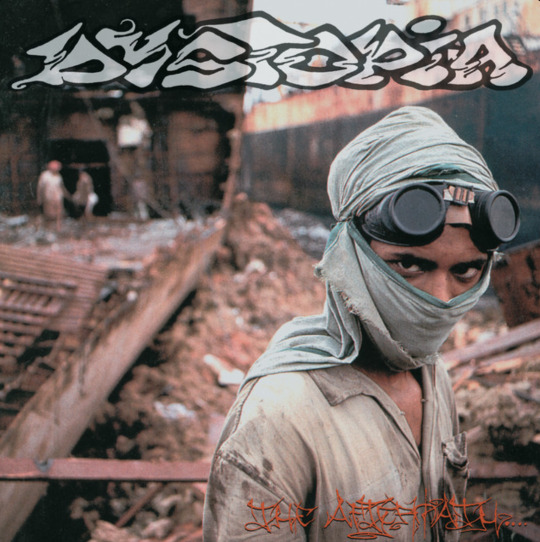
Dystopia - The Aftermath
God, clearly I've been on a Dystopia and Crust Punk kick, but here's another just ten out of fucking ten record from Crust Legends, Dystopia. This record doesn't take as much advantage of sampling as some of their other records, but to be honest, I don't mind too much. Now, don't get me wrong, I fucking love the sampling on their other work, but the riffs and singing and overall musical performance on this record are just as strong as their other work, and just as worthy of some serious attention.
The thing that really separates dystopia from other crust punk bands is their embracing of Sludge Metal. Now, a shit ton of Crust bands embrace metal, but it's usually black metal, in the sense that they'll include tremolo picking minor or melodically dissonant riffs; or it'll be metalcore, usually by leaning more into modern hardcore. But, for Dystopia, you have these long bluesy but still harsh and grimey riffs overflowing with these individual classic crust flourishes like arpeggiating guitar chords, distorted and grimey sounding guitars, more of a screeching then growling sound to the vocals, and loads and loads of bass drum.
Dystopia is just so fucking good. I absolutely recommend any fan of the genre or of music in general at least give them as a band a shot. Definitely one of my personal favorites.
#now listening#album recs#grindcore#music recs#punk#music#classic album#Sludge Metal#Sludge#Crust#Crust Punk#Crust Punx#Crust Punk Album#Classic Crust Punk Album#Classic Crust Album#Classic Punk Album#Punk Rock#Punk Rock album#Punk Rock Review#Punk Rock Recommendation#Grindcore Album#Classic Sludge Metal#Dystopia#The Aftermath
8 notes
·
View notes